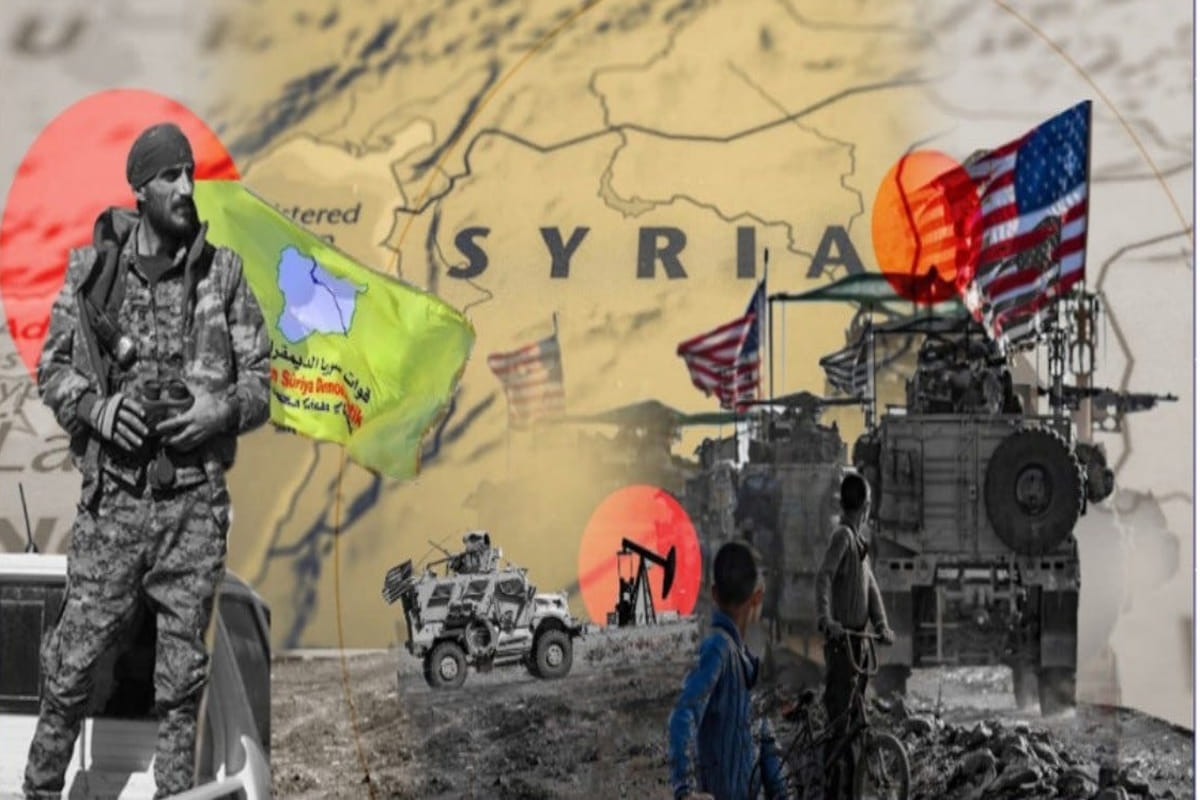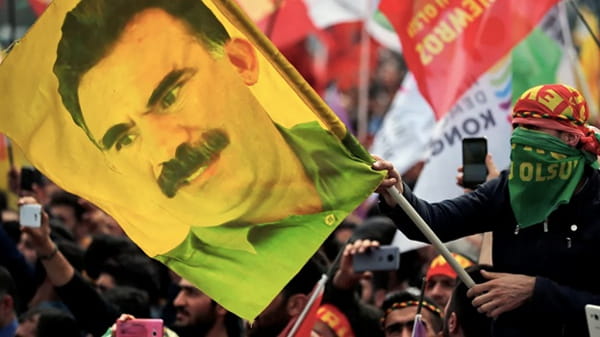
Representative image. | medium.com
THE KURDS HAVE A CLEAR VISION FOR A PEACEFUL SELF-POSITIONING OF TURKEY IN WEST ASIA
Since the 1970s in particular, the Kurds have contributed considerably, with the help of modern forms of social self-organization, to a critical reconsideration of Turkey’s neo-Ottoman claims of hegemony, which have been based on a policy of denial and genocide against the Kurdish people for 100 years. Part III of the three-part series on the Kurds.
In Turkey itself, there are strong voices advocating a new self-positioning of the country in West Asia. For decades, the Kurdish population has been calling for the country’s ambitions for a hegemonic role in the region to be reconsidered and corrected. Around 25 million Kurds live in the southeast and the main metropolitan areas of Istanbul, Ankara, and Izmir, making up almost 30% of Turkey’s total population. This gives them a correspondingly large demographic weight. Thanks to the high degree of political organization in the form of the People's Equality and Democracy (DEM) Party - the third largest party in the Turkish parliament with 63 MPs - and numerous other civil society organizations, the Kurds are a key player in Turkey today. Their vision for the country’s domestic and foreign policy direction is therefore being heard strongly, despite Turkey’s traditionally ignorant attitude towards its own Kurdish population.
The Kurdish Political Influence and Öcalan’s Role in Shaping Regional Relations
The political ideas of the Kurds are strongly influenced by their historical role in the heart of West Asia. Traditionally, they have friendly relations with other ethnic and religious groups in the region. These include close relations with the Armenian, Assyrian, Arab, Turkmen, as well as Christian, Jewish, and Shiite populations in Kurdistan itself. But Kurds have also always maintained positive relations with their Persian, Ara,b and Turkish neighbors on a social level.
Since the 1970s in particular, the Kurds have contributed considerably, with the help of modern forms of social self-organization, to a critical reconsideration of Turkey’s neo-Ottoman claims of hegemony, which have been based on a policy of denial and genocide against the Kurdish people for 100 years.
In recent months, a very important political initiative has once again emerged from the ranks of Kurdish politics in the form of an appeal by the Kurdish people’s leader Abdullah Öcalan. This call has the potential to contribute to the end of Turkey’s neo-Ottoman policy. A look at this initiative is crucial if one is to think about realistic perspectives for a repositioning of Turkey on the basis of peaceful and equal relations with its West Asian neighbors. In the form of his appeal, Mr. Öcalan has not only opened the door to a political solution to the Kurdish question in Turkey but has also made a proposal for a new role for the country in the region.
On 27 February 2025, Abdullah Öcalan addressed the Turkish public with his ‘Call for Peace and a Democratic Society’. This very striking document, which Mr. Öcalan read out during a meeting on the Turkish prison island of Imrali, contains important proposals for a fundamentally new self-image of the country. In the call, Mr. Öcalan refers to the 1000-year-old historical roots of Kurdish-Turkish relations and describes them as “defined in terms of mutual cooperation and alliance, and Turks and Kurds have found it essential to remain in this voluntary alliance to maintain their existence and survive against hegemonic powers.” Recognizing the crisis in these relations over the past 100 years, he demands: “Today, the main task is to restructure the historical relationship, which has become extremely fragile, without excluding consideration for beliefs with the spirit of fraternity.” For Mr. Öcalan, a democratic framework is the decisive factor in reshaping the Republic of Turkey: “The second century of the Republic can achieve and assure permanent and fraternal continuity only if it is crowned with democracy.”

PKK leader Abdullah Öcalan urges the banned Kurdish group to disarm and dissolve | AP.
Accordingly, in his appeal, he calls for the development of a “language of the epoch of peace and democratic society” and takes the first step in this direction by calling for the dissolution of the PKK and the laying down of its weapons. He emphasizes that far-reaching steps will be necessary for a successful redefinition of Turkey’s political and legal culture: “Undoubtedly, the laying down of arms and the dissolution of the PKK in practice require the recognition of democratic politics and a legal framework.” This call by Abdullah Öcalan can be seen as the most important political initiative in Turkey for years.
If the proposed political and legal cultural change succeeds, the country will be able to experience social peace for the first time in 100 years.
Conclusion
The foreign policy approach of such a fundamentally changed Turkey will be correspondingly new. Turkey’s peace with its Kurdish population does not only mean renouncing the violent transformation of the sociological and political reality of West Asia. It also means abandoning the Missak-i Milli and its hegemonic ambitions for power in the region. Turkey, which makes democratic politics the basis of its relations with the Kurdish people, will also be interested in a democratic dialogue with its neighboring countries. It will realize that war, occupation, and shifting borders are no basis for a promising foreign policy. Instead, diplomatic exchange, economic integration, and people-to-people relations will be the most important pillars on which Turkey’s position in West Asia will be based.
It is therefore important to understand the enormous significance of Abdullah Öcalan’s call on 27 February 2025 for a fundamental repositioning of Turkey in the region. The international community has a great interest in such a democratic and peaceful Turkey, as it would give up its role as a major destabilizing factor in West Asia. International support for Mr. Öcalan’s ‘Call for Peace and a Democratic Society’ can therefore not only make an important contribution to resolving one of the region’s most central conflicts but also transform Turkey into a new West Asian actor for democracy and stability.
(Exclusive to NatStrat)
End of Part III of the three-part series.